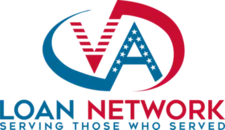Last updated on September 3rd, 2024 at 08:59 pm
In this Article
How Disability Status Affects VA Loan Eligibility
The VA loan program offers tremendous benefits to all veterans, but those with a service-connected disability may qualify for additional advantages.
Disabled veterans often face unique financial and housing challenges, and the Department of Veterans Affairs (VA) aims to address these by making homeownership more accessible.
This guide will break down how disability status impacts VA loan eligibility, including additional benefits available, requirements, and useful tips for navigating the VA loan process as a disabled veteran.
What Is a VA Loan?
A VA loan is a government-backed mortgage program available to veterans, active-duty military personnel, and in some cases, surviving spouses. The VA doesn’t lend money directly but guarantees a portion of the loan, making it easier for lenders to offer favorable terms such as low-interest rates and no down payment.
This guarantee reduces the financial risk to lenders, allowing them to relax some of the requirements for borrowers.
For disabled veterans, VA loans come with even more benefits that can significantly lower the costs of buying or refinancing a home.
VA Loan Eligibility Requirements for Disabled Veterans
Disabled veterans are subject to the same basic VA loan eligibility criteria as other veterans, but they may be eligible for additional financial perks. Here’s a breakdown of the general requirements along with the added benefits for disabled veterans:
Basic VA Loan Eligibility Requirements:
- Service Requirements:
- 90 consecutive days of active service during wartime, or
- 181 days of active service during peacetime, or
- 6 years of service in the National Guard or Reserves.
- Discharged for a service-connected disability before meeting the service requirement.
- Certificate of Eligibility (COE):
- Veterans must obtain a COE, which verifies they meet the service requirements for a VA loan. This can be done through the VA’s eBenefits portal or by submitting VA Form 26-1880.
- Income and Employment:
- Veterans must show stable income, typically for at least two years. While disabled veterans may not be employed due to their condition, disability income (such as VA disability compensation) can be used to meet income requirements.
- Credit Requirements:
- The VA does not set a minimum credit score, but most lenders require a score of at least 620. Disabled veterans may still qualify with a lower score if other financial factors, such as income and debt, are in good standing.
Special Benefits for Disabled Veterans
Disabled veterans receive several additional benefits when applying for a VA loan. These include exemptions from certain fees and more lenient approval processes, which can make homeownership more affordable and accessible.
1. VA Funding Fee Exemption
One of the biggest financial advantages for disabled veterans is the exemption from the VA funding fee. This fee is typically required on VA loans to help fund the program and ranges from 1.4% to 3.6% of the loan amount, depending on factors like the down payment and whether it’s a first-time or subsequent use of the loan benefit.
Veterans with a service-connected disability rating of 10% or higher are exempt from paying this fee, resulting in significant savings.
Here’s a table that illustrates the potential savings for disabled veterans:
| Loan Amount | VA Funding Fee for Non-Disabled Veteran (First Use) | VA Funding Fee for Non-Disabled Veteran (Subsequent Use) | VA Funding Fee for Disabled Veteran |
|---|---|---|---|
| $200,000 | $4,600 (2.3%) | $6,900 (3.6%) | $0 |
| $300,000 | $6,900 (2.3%) | $10,800 (3.6%) | $0 |
| $400,000 | $9,200 (2.3%) | $14,400 (3.6%) | $0 |
Property Tax Exemptions for Disabled Veterans for all 50 states
2. More Lenient Approval Process
Disabled veterans may benefit from a more lenient approval process, particularly in cases where financial hardship is directly related to their disability.
For instance, some lenders are more flexible with debt-to-income (DTI) ratios or may overlook minor credit issues for veterans who have a steady source of disability income.
Additional Financial Assistance for Disabled Veterans
In addition to the VA loan benefits, disabled veterans may qualify for other financial programs to help them purchase, modify, or improve a home.
1. Specially Adapted Housing (SAH) Grant
This grant provides funds to help veterans with specific disabilities purchase, build, or modify a home to meet their needs. Veterans who have severe disabilities, such as the loss of limbs, blindness, or certain mobility impairments, may be eligible for this grant.
- Maximum SAH Grant Amount (2024): $109,986
Eligible uses for the SAH grant include:
- Building a new, adapted home
- Modifying an existing home to accommodate a disability
- Purchasing a home that already meets the veteran’s disability needs
2. Special Housing Adaptation (SHA) Grant
The SHA grant is available to veterans with specific service-connected disabilities to help modify their homes. Unlike the SAH grant, which focuses on severe disabilities, the SHA grant is intended for veterans with less severe conditions but who still need modifications to improve accessibility.
- Maximum SHA Grant Amount (2024): $22,036
How Disability Compensation Affects VA Loan Eligibility
A disabled veteran’s disability compensation plays a significant role in determining eligibility for a VA loan. While this compensation can be counted as income to meet the loan’s requirements, it also impacts other factors such as the debt-to-income ratio and affordability.
1. Counting Disability Income Toward Loan Approval
One of the advantages of disability compensation is that it’s considered non-taxable income. Lenders often treat disability compensation more favorably than taxable income, which can help disabled veterans qualify for larger loan amounts. Additionally, VA disability benefits are considered stable income, which can further strengthen a loan application.
2. Impact on Debt-to-Income Ratio
The debt-to-income ratio (DTI) measures how much of your monthly income goes toward debt payments, including the potential mortgage payment. While the VA doesn’t set a maximum DTI ratio, most lenders prefer a DTI below 50%. However, disability income can improve your DTI, as it’s typically steady and non-taxable, giving lenders more flexibility in approving a loan.
3. Effect on Loan Amount
Veterans with higher disability ratings may qualify for more favorable loan terms due to their stable income and funding fee exemptions. This can help veterans purchase homes with little or no out-of-pocket costs.
Property Tax Exemptions for Disabled Veterans
Many states offer property tax exemptions for disabled veterans, which can provide substantial savings on annual property taxes. The level of exemption varies by state and is usually tied to the veteran’s disability rating. Here are some examples of property tax exemptions by state:
| State | Disability Rating Required | Property Tax Exemption Amount |
|---|---|---|
| California | 100% | Full exemption on primary residence |
| Texas | 10% or higher | Up to $12,000 exemption |
| Florida | 100% | Full exemption |
| New York | Any service-connected | Varies by local government |
Disabled veterans should contact their state’s Department of Veterans Affairs or their local tax assessor to determine their eligibility for property tax exemptions.
Applying for a VA Loan as a Disabled Veteran
The process of applying for a VA loan as a disabled veteran is similar to other veterans, but with the added benefit of exemptions and accommodations. Below are the steps to apply:
1. Obtain Your Certificate of Eligibility (COE)
The COE is the first step in securing a VA loan. Disabled veterans can obtain their COE through the VA’s eBenefits portal, their lender, or by submitting VA Form 26-1880.
2. Pre-Qualify with a VA-Approved Lender
It’s essential to pre-qualify for a VA loan with a lender. During this process, your lender will review your financial history, credit score, and income, including any disability compensation. Pre-qualification will give you a clear idea of how much home you can afford.
3. Provide Proof of Disability Rating
Ensure your lender is aware of your disability status so they can apply the appropriate benefits, such as the VA funding fee exemption. This should be reflected on your Certificate of Eligibility, but you may also need to provide additional documentation, such as a disability award letter from the VA.
4. Submit Your Loan Application
Once pre-qualified, you can submit a formal loan application. This will require documentation of your income (including disability compensation), employment history, and credit report. Your lender will guide you through this process.
5. Close on Your Home
After your loan is approved, you’ll move to the closing stage. At closing, the VA funding fee exemption will be applied, and you’ll finalize the terms of your loan. Once complete, you’ll be the proud owner of your new home.
Important Considerations for Disabled Veterans
When applying for a VA loan, disabled veterans should keep several key factors in mind:
- Supplemental Income: Veterans who are not employed may need to show proof of supplemental income, such as VA disability compensation, to meet the lender’s income requirements.
- Credit Flexibility: Some lenders may offer more flexible credit requirements for disabled veterans, especially if they have a steady source of disability income.
- Property Eligibility: Make sure the home meets the VA’s minimum property requirements, especially if modifications are needed for accessibility.
The Bottom Line
The VA loan program offers incredible benefits for disabled veterans, making it easier to achieve the dream of homeownership. From exemptions on the VA funding fee to grants for home modifications and property tax exemptions, the program is designed to address the unique needs of veterans with service-connected disabilities. By understanding how disability status affects VA loan eligibility, disabled veterans can make informed decisions and take full advantage of the benefits available to them.

















